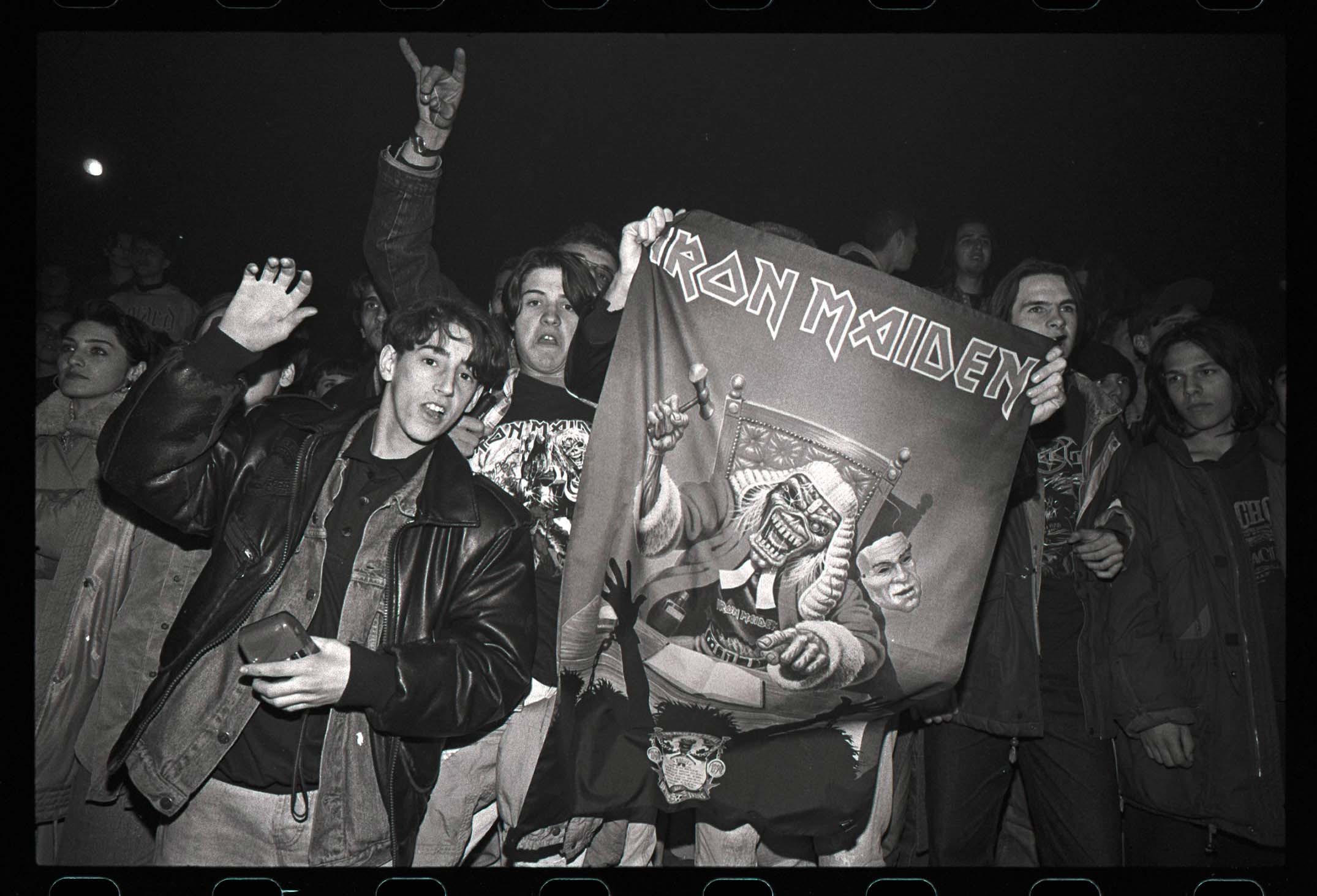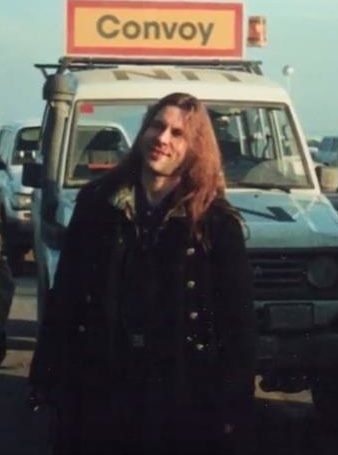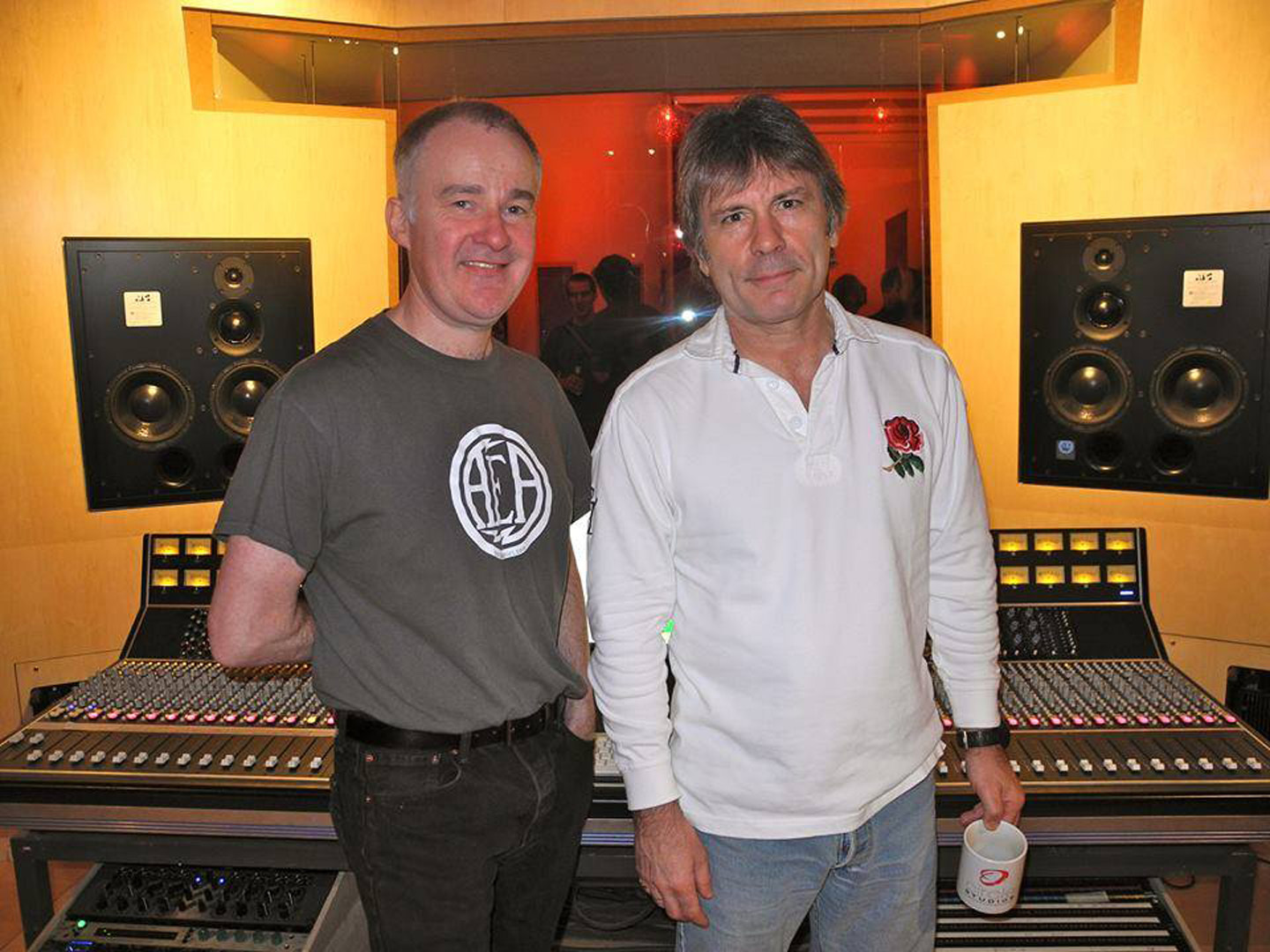
IT was a horrendous, brutal siege in a civil war tearing the Balkans apart.
The violence would eventually cost the lives of more than 11,000 people in Sarajevo as the city, surrounded by 18,000 Serbian troops, was attacked by artillery and snipers between 1992 and 1996.
Trying to get in or out of the shattered Bosnian capital was fraught, dangerous, and often fatal.
But, a former United Nations aid worker has revealed, that did not stop an astonishing mission to smuggle heavy metal singer Bruce Dickinson into the city for a morale-raising concert.
Trevor Gibson has told how he spirited the Iron Maiden frontman through the warzone after a helicopter – due to airlift Dickinson from Split in Croatia – was shot down the day before the 1994 gig.
Rather than give up and let down the fans waiting for him, the singer hitchhiked towards Sarajevo.
Trevor, 52, from Annan, said: “Initially we tried to get the Rolling Stones but they turned it down. Then we asked Motorhead who said yes and then pulled out a few weeks before the gig.
“So we called the editor of heavy metal magazine Kerrang! and asked who would be crazy enough to do this, and he said call Bruce Dickinson.
“The plan was for him to fly from Britain to Split on a commercial flight. A UN helicopter would fly him into Sarajevo, he’d play the gig and be flown back to Split again.
“The helicopter due to bring them in was shot down the day before so we didn’t have a helicopter. Bruce hitchhiked with the humanitarian group Serious Road Trip and we smuggled him across the line.”
Dickinson played three gigs in the city, a full-scale show to 1,000 people with his band and two acoustic sets at an orphanage on the frontline and for the UN fire house for an audience of 50 workers.
The story has now been made into a film – after Trevor made contact with Chris Dale, who was the bass player in Dickinson’s band.
In his autobiography, Dickinson said of the experience: “The gig was immense, intense and probably the biggest show in the world at that moment for the audience and for us.
“That the world didn’t know didn’t matter. It changed the way I viewed life, death and other human beings.”
From April 1992, Bosnia was trapped in a four-year conflict after declaring independence from Yugoslavia. Sarajevo came under siege as Bosnian Serbs, armed by the Yugoslav army, began a programme of ethnic cleansing.
During his time in the city, where he worked as a negotiator for the UN fire department, Trevor witnessed the horrors of war and was injured.
Trevor admitted that it took two decades to properly comprehend what he witnessed during his time in Bosnia, with everything hitting home when he returned to Sarajevo for its 2016 film festival.
The incident that led to his injuries, and the day he witnessed the fatal shooting of a child, were recorded as part of the UN tribunal against Ratko Mladic, the former Bosnian Serb army commander, sentenced last year.
Trevor said: “A child and his mother walked past me and the child asked for bonbons.
“The kid walked 50 yards and was shot. It killed the boy and injured his mother.
“I jumped into my Land Rover and parked it between the sniper and the pair. We got them into the ambulance and took them to get help.
“I’m now aware that the mother who lived went to the screening of the movie in Sarajevo but I didn’t get to meet her.”

Enjoy the convenience of having The Sunday Post delivered as a digital ePaper straight to your smartphone, tablet or computer.
Subscribe for only £5.49 a month and enjoy all the benefits of the printed paper as a digital replica.
Subscribe
